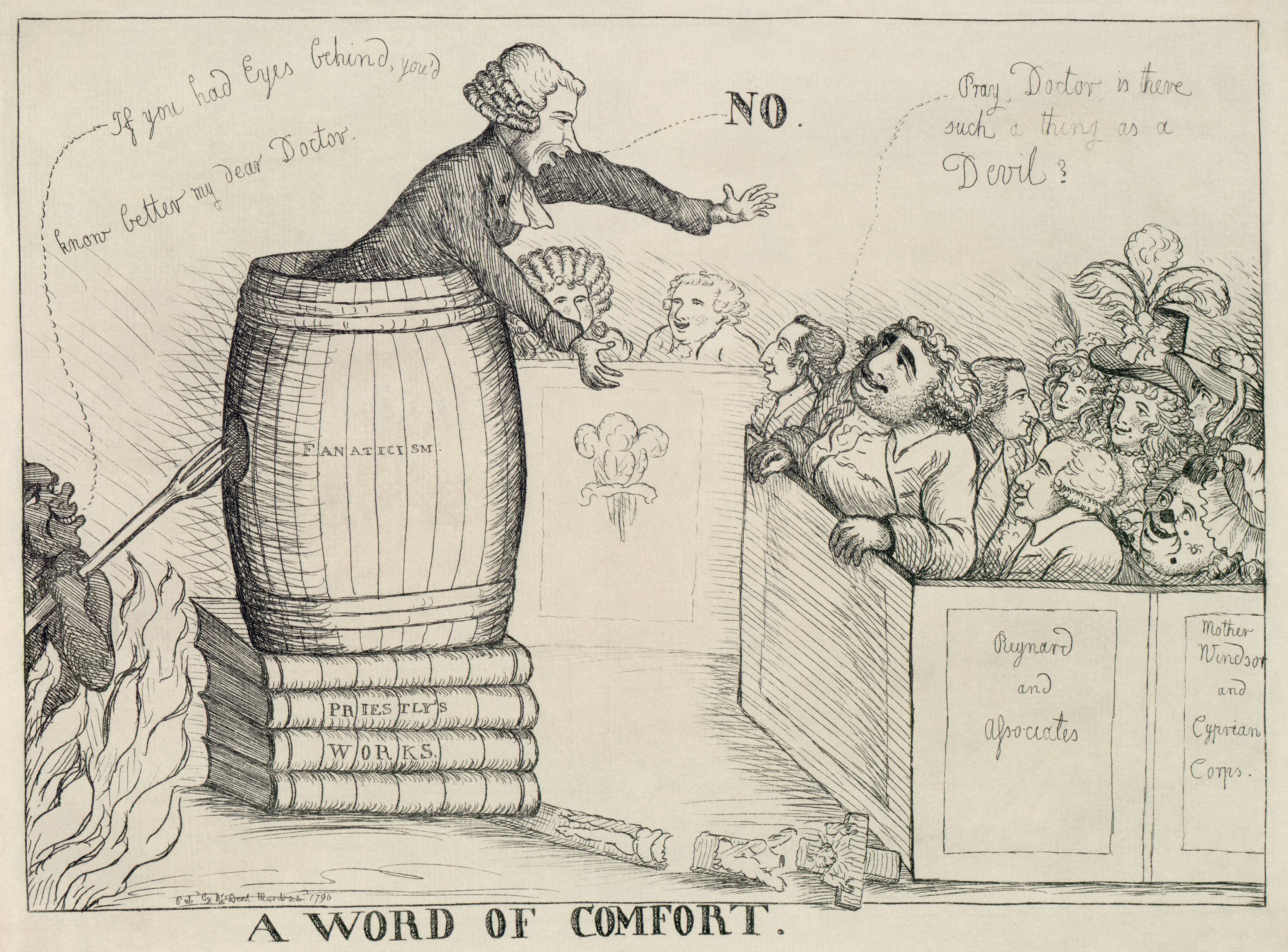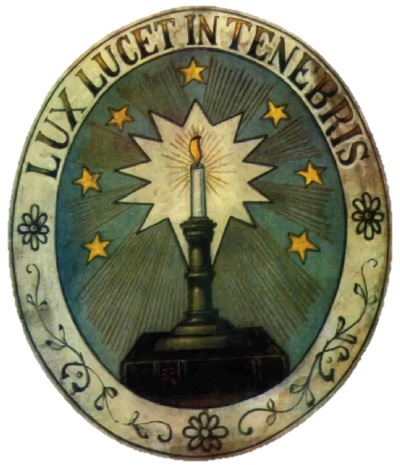|
Declaration Of Right
The Declaration of Right, or Declaration of Rights, is a document produced by the English Parliament, following the 1688 Glorious Revolution. It sets out the wrongs committed by the exiled James II, the rights of English citizens, and the obligation of their monarch. On 13 February 1689, it was read out to James' daughter, Mary, and her husband, William of Orange, when they were jointly offered the throne, although not made a condition of acceptance. The Declaration itself was a tactical compromise between Whig and Tories; it established grievances, without agreeing their cause, or solution. Background The first Stuart monarch, James VI and I, sought to combine the three separate kingdoms of Scotland, Ireland, and England into a centralised British state, under a monarch whose authority came from God, and the duty of Parliament and his subjects was to obey. Their attempts to enforce this led to the 1638 to 1651 Wars of the Three Kingdoms and execution of Charles I in 164 ... [...More Info...] [...Related Items...] OR: [Wikipedia] [Google] [Baidu] |
English Parliament
The Parliament of England was the legislature of the Kingdom of England from the 13th century until 1707 when it was replaced by the Parliament of Great Britain. Parliament evolved from the great council of bishops and peers that advised the English monarch. Great councils were first called Parliaments during the reign of Henry III (). By this time, the king required Parliament's consent to levy taxation. Originally a unicameral body, a bicameral Parliament emerged when its membership was divided into the House of Lords and House of Commons, which included knights of the shire and burgesses. During Henry IV's time on the throne, the role of Parliament expanded beyond the determination of taxation policy to include the "redress of grievances," which essentially enabled English citizens to petition the body to address complaints in their local towns and counties. By this time, citizens were given the power to vote to elect their representatives—the burgesses—to t ... [...More Info...] [...Related Items...] OR: [Wikipedia] [Google] [Baidu] |
Louis XIV Of France
, house = Bourbon , father = Louis XIII , mother = Anne of Austria , birth_date = , birth_place = Château de Saint-Germain-en-Laye, Saint-Germain-en-Laye, France , death_date = , death_place = Palace of Versailles, Versailles, France , burial_date = 9 September 1715 , burial_place = Basilica of Saint-Denis , religion = Catholicism ( Gallican Rite) , signature = Louis XIV Signature.svg Louis XIV (Louis Dieudonné; 5 September 16381 September 1715), also known as Louis the Great () or the Sun King (), was King of France from 14 May 1643 until his death in 1715. His reign of 72 years and 110 days is the longest of any sovereign in history whose date is verifiable. Although Louis XIV's France was emblematic of the age of absolutism in Europe, the King surrounded himself with a variety of significant political, military, and cultural figures, such as Bossuet, Colbert, Le Brun, Le Nôtre, Lully, Mazarin, Molière, Racine, ... [...More Info...] [...Related Items...] OR: [Wikipedia] [Google] [Baidu] |
Act Of Settlement 1701
The Act of Settlement is an Act of the Parliament of England that settled the succession to the English and Irish crowns to only Protestants, which passed in 1701. More specifically, anyone who became a Roman Catholic, or who married one, became disqualified to inherit the throne. This had the effect of deposing the descendants of Charles I, other than his Protestant granddaughter Anne, as the next Protestant in line to the throne was Sophia of Hanover, a granddaughter of James VI and I from his most junior surviving line, with the crowns descending only to her non-Catholic heirs. Sophia died shortly before the death of Queen Anne, and Sophia's son succeeded to the throne as King George I, starting the Hanoverian dynasty in Britain. The Act of Supremacy 1558 had confirmed the independence of the Church of England from Roman Catholicism under the English monarch. One of the principal factors which contributed to the Glorious Revolution was the perceived assaults made o ... [...More Info...] [...Related Items...] OR: [Wikipedia] [Google] [Baidu] |
Charles Trelawny
Major General Charles Trelawny, also spelt 'Trelawney', (1653 – 24 September 1731) was an English soldier from Cornwall who played a prominent part in the 1688 Glorious Revolution, and was a Member of Parliament for various seats between 1685 and 1713. Trelawny began his military career in 1673, and held a number of senior commands under Charles II. Like many Tories, he initially backed the succession of James II in 1685, despite his Catholicism; his defection in 1688 illustrated the extent to which James had alienated his primary support base. His elder brother, Sir Jonathan Trelawny, was one of the Seven Bishops whose prosecution and subsequent acquittal destroyed James' political authority. Along with John Churchill, later Duke of Marlborough, Trelawny organised support within the army for the November 1688 Glorious Revolution, when James was replaced by his Protestant daughter Mary, and Dutch son-in-law William of Orange. Trelawny served in the 1689 to 1691 Willi ... [...More Info...] [...Related Items...] OR: [Wikipedia] [Google] [Baidu] |
Landed Gentry
The landed gentry, or the ''gentry'', is a largely historical British social class of landowners who could live entirely from rental income, or at least had a country estate. While distinct from, and socially below, the British peerage, their economic base in land was often similar, and some of the landed gentry were wealthier than some peers. Many gentry were close relatives of peers, and it was not uncommon for gentry to marry into peerage. It is the British element of the wider European class of gentry. With or without noble title, owning rural land estates often brought with it the legal rights of lord of the manor, and the less formal name or title of ''squire'', in Scotland laird. Generally lands passed by primogeniture, and the inheritances of daughters and younger sons were in cash or stocks, and relatively small. Typically the gentry farmed some of their land, as well as exploiting timber, minerals such as coal, and owning mills and other sources of income, b ... [...More Info...] [...Related Items...] OR: [Wikipedia] [Google] [Baidu] |
Passive Obedience
Passive obedience is a religious and political doctrine, which states that people have a moral duty to obey the law, in particular accepting punishment as part of this obedience. George Berkeley The most notable publication describing this doctrine was Bishop George Berkeley's ''A Discourse on Passive Obedience'' (1712). The tract is considered Berkeley's major contribution to moral and political philosophy. In ''A Discourse on Passive Obedience'', Berkeley defends the thesis that people have "a moral duty to observe the negative precepts (prohibitions) of the law, including the duty not to resist the execution of punishment."Hayry, Matti. "Passive Obedience and Berkeley's Moral Philosophy." Berkeley Studies 23 (2012): 3-13. Web However, Berkeley does make exceptions to this sweeping moral statement, stating that we need not observe precepts of "usurpers or even madmen" and that people can obey different supreme authorities if there are more than one claims to the highest autho ... [...More Info...] [...Related Items...] OR: [Wikipedia] [Google] [Baidu] |
English Dissenters
English Dissenters or English Separatists were Protestant Christians who separated from the Church of England in the 17th and 18th centuries. A dissenter (from the Latin ''dissentire'', "to disagree") is one who disagrees in opinion, belief and other matters. English Dissenters opposed state interference in religious matters, and founded their own churches, educational establishments and communities. Some emigrated to the New World, especially to the Thirteen Colonies and Canada. Brownists founded the Plymouth colony. English dissenters played a pivotal role in the spiritual development of the United States and greatly diversified the religious landscape. They originally agitated for a wide-reaching Protestant Reformation of the established Church of England, and they flourished briefly during the Protectorate under Oliver Cromwell. King James VI of Scotland, I of England and Ireland, had said "no bishop, no king", emphasising the role of the clergy in justifying royal l ... [...More Info...] [...Related Items...] OR: [Wikipedia] [Google] [Baidu] |
Test Act
The Test Acts were a series of English penal laws that served as a religious test for public office and imposed various civil disabilities on Roman Catholics and nonconformists. The underlying principle was that only people taking communion in the established Church of England were eligible for public employment, and the severe penalties pronounced against recusants, whether Catholic or nonconformist, were affirmations of this principle. Similar laws were introduced in Scotland with respect to the Presbyterian Church of Scotland. In practice nonconformists were often exempted from some of these laws through the regular passage of Acts of Indemnity: in particular, the Indemnity Act 1727 relieved Nonconformists from the requirements in the Test Act 1673 and the Corporation Act 1661 that public office holders must have taken the sacrament of the Lord's Supper in an Anglican church. Except at Oxbridge, where nonconformists and Catholics could not matriculate (Oxford) or gradua ... [...More Info...] [...Related Items...] OR: [Wikipedia] [Google] [Baidu] |
Counter-Reformation
The Counter-Reformation (), also called the Catholic Reformation () or the Catholic Revival, was the period of Catholic resurgence that was initiated in response to the Protestant Reformation. It began with the Council of Trent (1545–1563) and largely ended with the conclusion of the European wars of religion in 1648. Initiated to address the effects of the Protestant Reformation, the Counter-Reformation was a comprehensive effort composed of apologetic and polemical documents and ecclesiastical configuration as decreed by the Council of Trent. The last of these included the efforts of Imperial Diets of the Holy Roman Empire, heresy trials and the Inquisition, anti-corruption efforts, spiritual movements, and the founding of new religious orders. Such policies had long-lasting effects in European history with exiles of Protestants continuing until the 1781 Patent of Toleration, although smaller expulsions took place in the 19th century. Such reforms included the fo ... [...More Info...] [...Related Items...] OR: [Wikipedia] [Google] [Baidu] |
Savoyard–Waldensian Wars
The Savoyard–Waldensian wars were a series of conflicts between the community of Waldensians (also known as Vaudois) and the Savoyard troops in the Duchy of Savoy from 1655 to 1690. The Piedmontese Easter in 1655 sparked the conflict. It was largely a period of persecution of the Waldensian Church, rather than a military conflict. Joshua Janavel (1617–1690) was one of the Waldensian military leaders against the Savoyard ducal troops. Background A previous war between Emmanuel Philibert, Duke of Savoy and his Waldensian subjects raged from 1560 to 1561, beginning when the duke ordered all Protestants in his domain to revert to Catholicism. The duke had been forced to implement this policy by signing the Peace of Cateau-Cambrésis (1559). The Waldensians petitioned him, saying they had always stayed loyal to him and that their religion was the same as Jesus Christ originally taught it, and swore to become Catholics if their theology could be disproven in a debate. For months ... [...More Info...] [...Related Items...] OR: [Wikipedia] [Google] [Baidu] |



.jpg)



